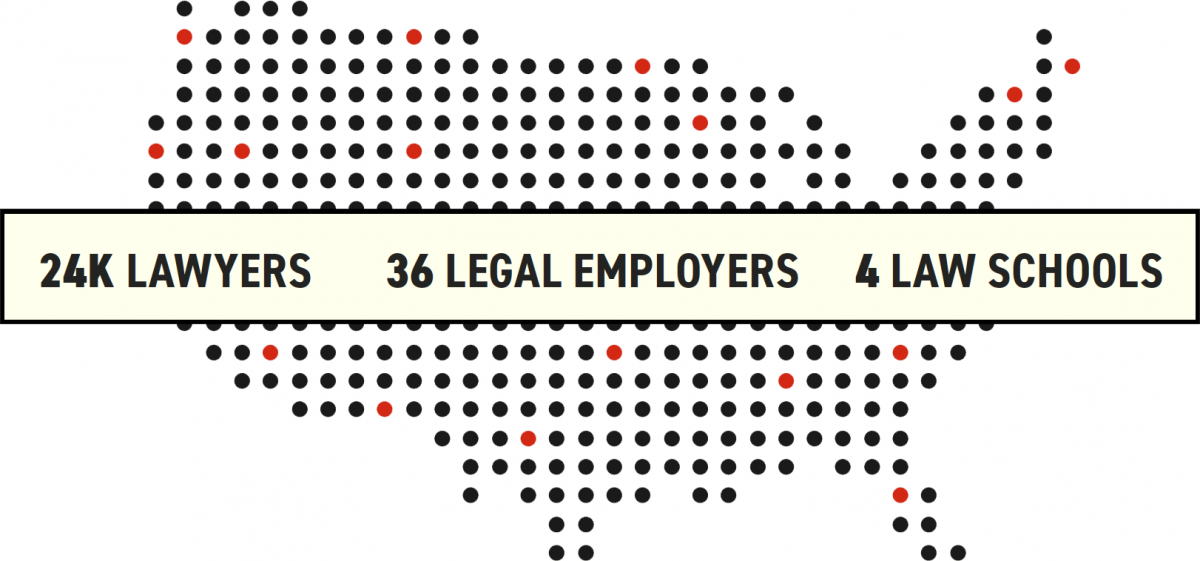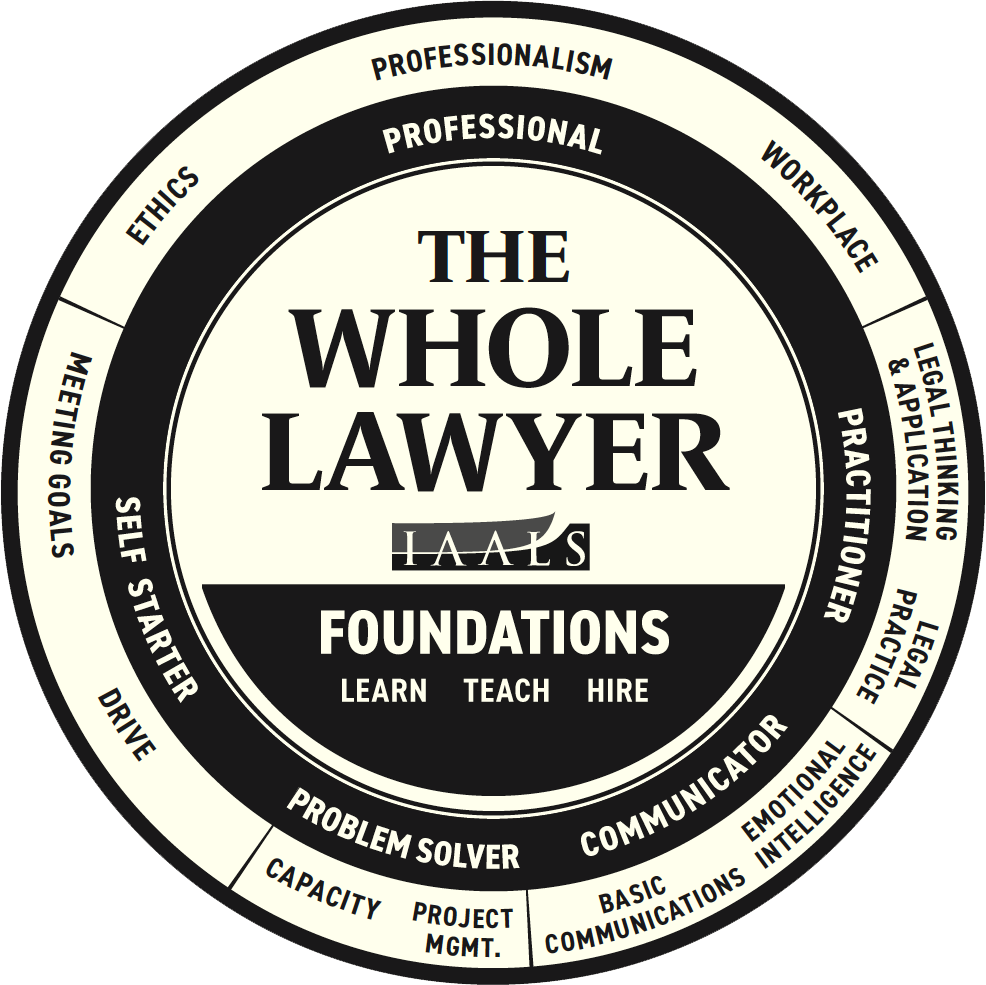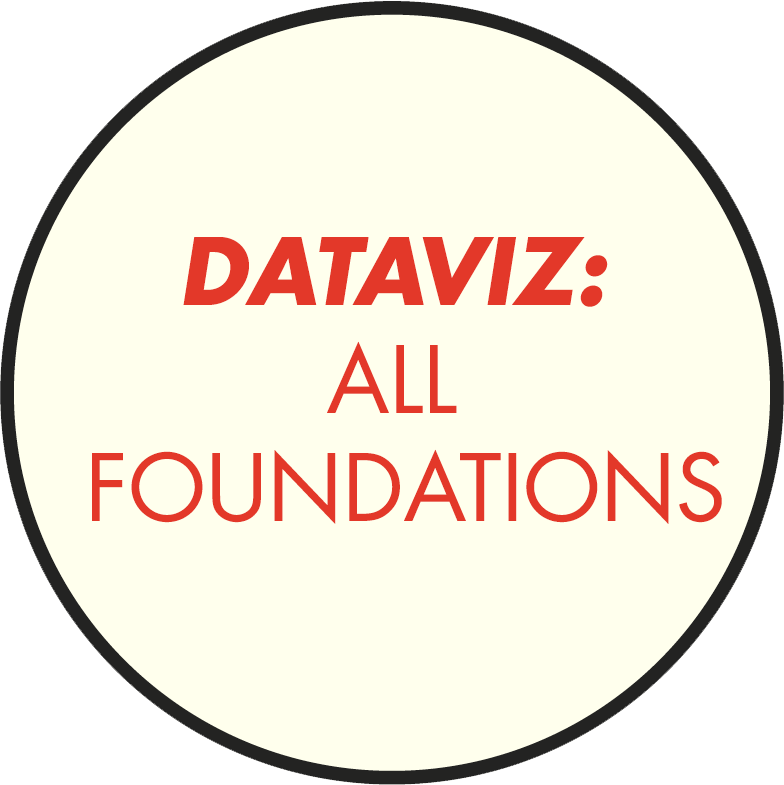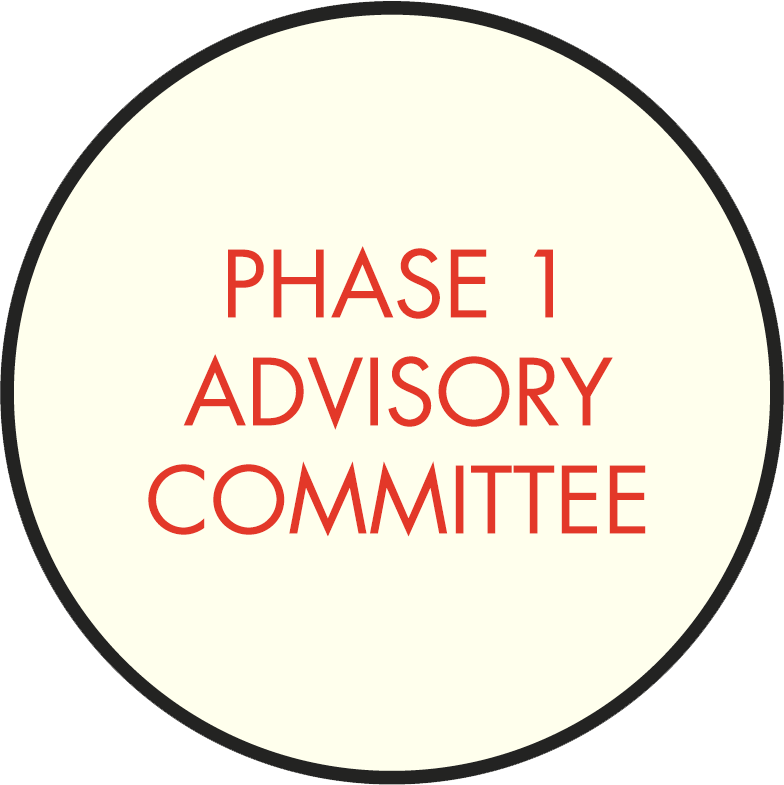< Back to Foundations for Practice
Most law students graduate thinking they have the knowledge, skills, and abilities necessary for practice, but that opinion is not shared by the profession they hope to enter or their future clients. Indeed this gap reflects that legal education does not sufficiently prepare students for practice. Not only do under-prepared lawyers undermine public trust in our legal system, but they also struggle longer and harder than they should as they try to gain footing in the legal profession.
Legal employers often exacerbate the problem: they rely on traditional indicators of success—such as class rank and law school attended—when hiring new lawyers that fail to truly assess whether a candidate is likely to succeed in their organization. Traditional hiring criteria not only reinforce and perpetuate the gap, but they also contribute to the legal profession’s status as among the least diverse professions in the United States.
Legal educators and employers must do better: the way forward is a shift to using data-driven practices based on empirical research to guide curriculum and hiring processes.

We Need to Move Beyond Traditional Approaches
 Traditional models of legal education and hiring present major obstacles to adopting new and improved methods. For instance, learning outcomes have never traditionally been a part of legal education, even though they are a primary feature of education in just about every other context—from kindergarten to graduate school. Indeed, medical schools had an early form of learning outcomes in the 1930s, which have been modernized over time. In law schools, the focus is on teaching rather than learning. Moreover, the U.S. News rankings in particular stultify creative spirit and disincentivize innovation in curriculum design, admissions criteria, and faculty hiring.
Traditional models of legal education and hiring present major obstacles to adopting new and improved methods. For instance, learning outcomes have never traditionally been a part of legal education, even though they are a primary feature of education in just about every other context—from kindergarten to graduate school. Indeed, medical schools had an early form of learning outcomes in the 1930s, which have been modernized over time. In law schools, the focus is on teaching rather than learning. Moreover, the U.S. News rankings in particular stultify creative spirit and disincentivize innovation in curriculum design, admissions criteria, and faculty hiring.
On the employment side, criteria for hiring new lawyers are largely confined to small sets of information, such as law school ranking, grade point average, or professional connections. For employers, hiring is not based on the candidate’s actual experience, achievement, or performance needed for development and mastery of the competencies most relevant to the employer’s practice, but on a set of prestige factors that only tenuously connect to preparedness for practice. In addition to leaving out other key indicators for success, such as practical judgment and interpersonal relationship building abilities, the traditional hiring process limits efforts to diversify the legal workforce in law firms and throughout the profession.
Changing the status quo means seeing it for what it really is: a cycle of tradition that negatively impacts lawyers, employers, clients, and society. By applying empirical research to the problems readily identified by legal educators, employers, and clients, we can evolve and expand the paths of success for all new lawyers, but especially for those who are less advantaged because of race, gender, or socioeconomic background.
The Foundations suite of tools offers novel and innovative means to create alignment between law schools and legal employers, and to effectively address structural problems inherent in the status quo of the legal profession.

Foundations for Practice Survey
National Survey Data Defines the “Whole Lawyer”
In the most comprehensive effort of its kind, IAALS surveyed more than 24,000 lawyers in 50 states—across practice settings, specialty, and geography—to uncover the essential attributes of success for lawyers as they launch their careers.

The survey asked lawyers to indicate—for their specific type of organization, specialty, or department—whether 147 different legal skills, professional competencies, and characteristics are necessary immediately out of law school, can be acquired over time, are advantageous (but not necessary), or are not relevant. Ultimately, 76 items were considered necessary immediately out of law school by at least half of respondents—these are the 76 foundations a new lawyer needs to be successful.
Two findings warrant special note. First, new lawyers need character. Three-quarters of the characteristics presented in the survey were necessary right out of law school by at least half of respondents. Second, successful entry-level lawyers are not merely legal technicians, nor merely cognitive powerhouses. Any debate that places “law school as trade school” up against “law school as intellectual endeavor” misses the sweet spot of what legal education could be and what type of lawyers it should produce. New lawyers require cognitive ability and legal skills, but are most successful when they come to the job possessing 76 foundations that make up what we have termed the “Whole Lawyer”—a much broader blend of legal skills, professional competencies, and characteristics.
Hiring the Whole Lawyer: Experience Matters
Our survey also asked respondents which criteria would be most helpful in determining whether a candidate for employment possesses the foundations they identified as necessary. They told us that practical experience matters. Most employers still rely on traditional criteria like class rank, law school attended, and law review. However, our respondents told us that practical experiences—such as legal employment, recommendations from judges or practitioners, participation in a law school clinic, and other experiential education—are most effective in targeting candidates who have developed some degree of mastery in the needed foundations.

Read more in our published reports and explore our dataviz tools to see how lawyers nationwide ranked the foundations needed for successful law practice:
 |  |  |
 |  |  |

Driving Change in Legal Education and Employment
Educators and employers must work in parallel to develop these essential attributes of success in new lawyers. While law schools do the important work of educating students, legal employers can influence how schools prepare new lawyers for practice by hiring candidates based on the foundations that make the Whole Lawyer, instead of a narrow set of criteria rooted only in tradition (like class rank, school attended, and law review). When employers hire new candidates based on what they actually need, they not only incentivize improvements in legal education, they also cut through bias and hire a better, more diverse workforce.

Diversity
Foundations focuses our attention on the specific abilities that make for great lawyers, enabling us to identify a wide array of experiences and achievements that build those foundations, which are not limited to traditional criteria or prestige factors that often exclude Black, Indigenous, or People of Color (BIPOC). Thus, by creating more objective, transparent, and accountable practices for assessing qualified candidates for law school and for hire, Foundations has the potential to directly address systemic inequity and act as an entryway for more diversity in the profession.

Foundations in Action
The Foundations suite of resources includes Model Learning Outcomes and our Model Learning Outcomes Map, an Instructional Design Guide and Toolkit, and a Hiring Guide and Toolkit. Work is underway with Foundations for Learning to create Foundations-based student guidance for directed learning and professional development. IAALS is also in the process of mapping curriculum with pilot law schools to ensure graduates have the foundations they need, and we have established pilot projects at regional law firms to implement Foundations-based hiring practices and assess the outcomes.
IAALS consults with schools and employers nationwide to put these tools into practice and ensure the next generation of lawyers is diverse and primed for success. For more information, please contact:

Logan Cornett
Director of Research, IAALS
Phone: 303-871-6607
Email: logan.cornett@du.edu
To learn more about Foundations, please read our project summary.
To learn more about what Foundations currently has to offer to educators and employers, please go to Foundations for Teaching and Foundations for Hiring.
< Back to Foundations for Practice


